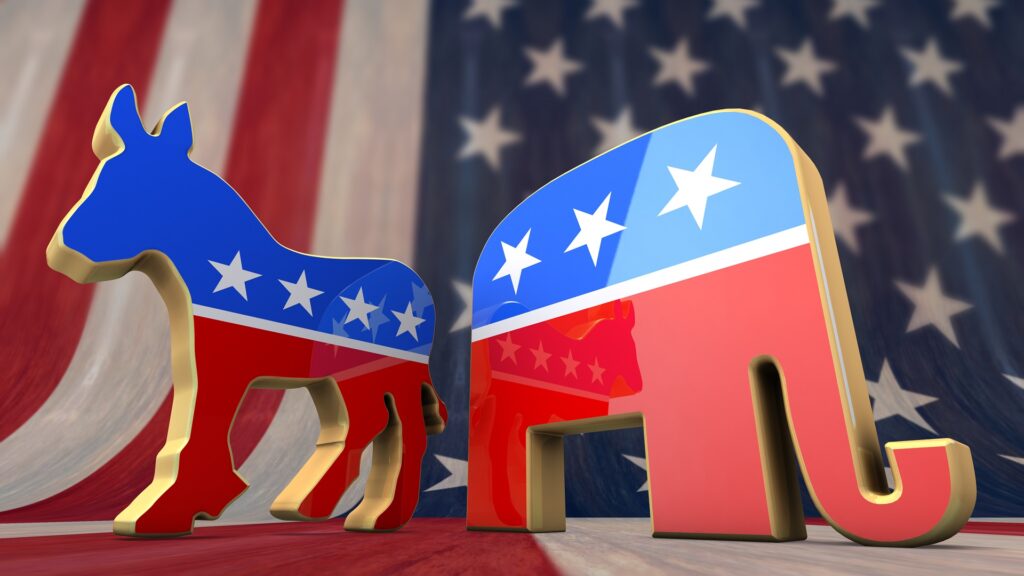This article made its debut on Constitutional Discourse.
Although the emergence and spread of Artificial Intelligence (AI) is not equal to living with Skynet yet, it is about much more than just a simple technological innovation. We have been using different AI-based solutions for a long time—e.g. GPS and chatbots—, however, the publicly available large language models are undoubtedly revolutionizing our lives in an unprecedented way.
Today, artificial intelligence permeates almost every aspect of our lives in various ways: social media platforms provide newsfeeds based on AI, air traffic control systems apply AI, even doctors and health care employees use various types of AI. Moreover, I drafted this article with the assistance of Google’s search algorithms. We all know that Facebook and Twitter (since Elon Musk’s takeover, renamed as X) and other platforms feed our hunger for news with AI-based content.
Algorithms explore the user’s taste and preferences and provide content that would probably be interesting to the reader. In recent years, we have seen an expansion of profile-based content and this has been even more tangible since the outbreak of the Russian-Ukrainian war. Based on the users’ feedback and reactions, platforms tend to meet users’ political and professional expectations.
They are aware of the users’ presumed political orientation, their opinion about certain topics, their professional standards,
and so on.
User profiles are built by analysing search habits, the time spent on each website or post, the relationships between the websites users regularly visit and their sharing habits—just to highlight some of the key elements of AI-based algorithmic social media operation.
This is why many argue that large tech companies are not just the owners of the most powerful assets in in the world—the users’ profiles—but are on the highway to becoming the new, unelected sovereigns.
To sense how dangerous platforms and profiling are in terms of public trust, we only have to remind ourselves of the previous US presidential election scandal involving Donald Trump and Facebook, or the Cambridge Analytica story or Brexit. When platforms intervene in national elections and form public opinion, it is necessarily a question of sovereignty and security.
Speaking of sovereignty, the paradigm requires three plus one factors: territory, population, supreme power and, since Montevideo, autonomy in external relations. By 2023, Big Tech will have the potential to exert a decisive influence on human societies across borders. Within the framework of the Westphalian system of sovereignty, such a capability, such a phenomenon, was completely unthinkable. In many cases, social media is now the communication channel of state power itself. This is not surprising, as social media and digital tools allow us to get our messages across much faster and more effectively than ever before. However, these technologies are almost exclusively controlled by a few large tech companies,
whose economic potential and ability to influence society often rivals or even exceeds that of the state.
And by now, we have come to the point where we have to treat the online space as an extended reality of our real world. Because online space is part of the real world. The two can’t be separated anymore.
And we haven’t even talked about hardcore artificial intelligence companies like OpenAI. OpenAI is currently being rolled out through so-called APIs. ChatGPT is cute if we want to ask it to write us a welcome letter. But its relevance and usage are wider than we can imagine, as it can be linked to other systems in the level of programming codes. Of course, the control and all the information obtained is the property of OpenAI.
According to some, we would need to examine whether large tech companies like Facebook can be considered as quasi-states, since the online/virtual space they created can be considered quasi-state territories, while their users can be considered as quasi-populations. Of course, this is just a thought experiment.
However, taking a step back, perhaps we should treat the virtual space much more seriously than a commercial or private law issue. Perhaps we should consider starting to talk about the online or virtual state territory as a factor of sovereignty, over which states need to exercise their sovereignty as they do over physical space, for instance as in the sense of floating territories.








